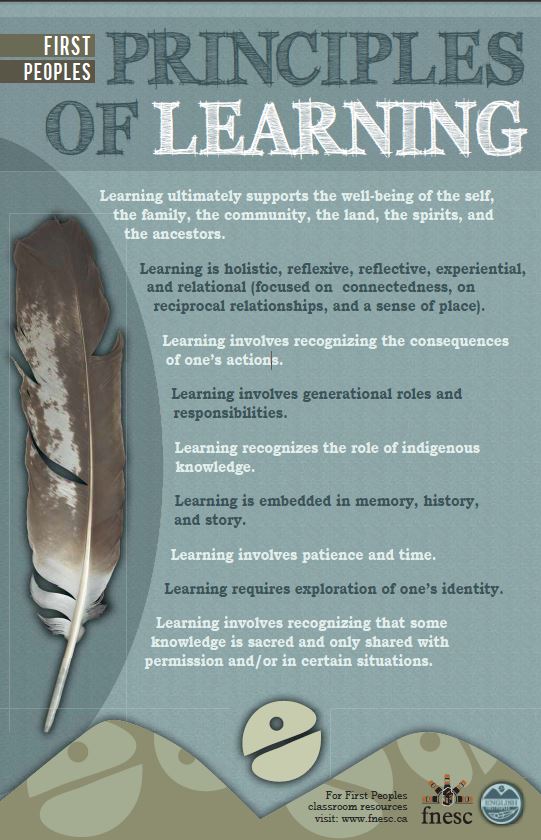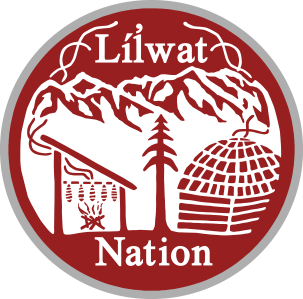Foundational Documents
First Peoples Principles of Learning:
The First Peoples Principles of Learning (FNESC, 2012), developed by the First Nations Education Steering Committee and the B.C. Ministry of Education, help us to embed Indigenous perspectives, knowledge, values, and understandings.
The principles are:
- Learning ultimately supports the well-being of the self, the family, the community, the land, the spirits, and the ancestors.

- Learning is holistic, reflexive, reflective, experiential, and relational (focused on connectedness, on reciprocal relationships, and a sense of place).
- Learning involves recognizing the consequences of one's actions.
- Learning involves generational roles and responsibilities.
- Learning recognizes the role of Indigenous knowledge.
- Learning is embedded in memory, history, and story.
- Learning involves patience and time.
- Learning requires exploration of one's identity.
- Learning involves recognizing that some knowledge is sacred and only shared with permission and/or in certain situations.

Squamish Learning Principles:

Lil'wat Learning Principles:

The Lil'wat Learning Principles (2008), developed by Lorna Williams, help us to embed Lil'wat perspectives, knowledge, values, and understandings.
The principles are:
- Kamúcwkalha: Acknowledging the felt energy indicating group attunement and the emergence of a common group purpose.
- Celhcelh: Each person being responsible for their own and others learning, always seeking learning opportunities.
- Kat'il'a: Seeking spaces of stillness and quietness amidst our busyness and quest for knowledge.
- A7xekcal: Valuing our own expertise and considering how it helps the entire community beyond ourselves.
- Cwelelep: Recognizing the need to sometimes be in a place of dissonance and uncertainty, heightened awareness, so as to be open to new learning.
- Emhaka7: Encouraging each of us to do the best we can at each task given to us.

Early Learning Framework:
The Early Learning Framework (2019) was developed in collaboration with early childhood educators, primary teachers, academics, Indigenous organizations, Elders, government and other professionals.

The Early Learning Framework's vision is respectfully living and learning together.
The principles are:
- Children are strong, capable in their uniqueness, and full of potential.
- Families have the most important role in contributing to children's well-being and learning.
- Educators are researchers and collaborators.
- Early years spaces are inclusive.
- People build connection and reconnection to land, culture, community and place.
- Environments are integral to well-being and learning.
- Play is integral to well-being and learning.
- Relationships are the context for well-being and learning.
- Learning is holistic.

Play Today Handbook:
The Play Today Handbook identifies play as an integral part of early learning and child care programming.
"Play should have a central role in the lives of young children - from infancy into middle childhood and beyond."
Province of BC, 2019

Educators take on different roles during a variety of play-based learning scenarios:
- Free Play
- Inquiry Play
- Collaborative Play
- Playful Learning
- Learning Games
School District 48 Education Plan:
Pathways to Learning (2019) is a living document that was collaboratively developed by stakeholders who examined community input, student data, and research. The key elements guide our actions and inspire great learning.